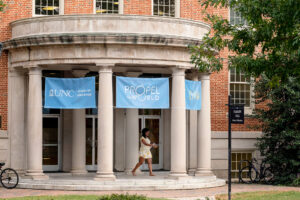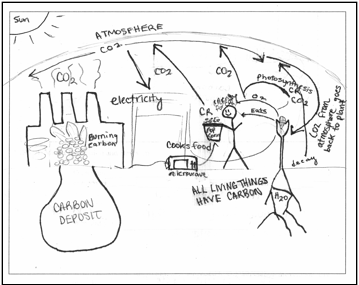Home
 The Science Education & Experiential Learning (SEEL) Team is a research group at the University of North Carolina at Chapel Hill School of Education. We are interested in creating new knowledge about teaching and learning with particular interests in science and experiential education. A primary focus of our work is on teaching and learning with complex social issues that relate to science. These issues, also known as Socio-Scientific Issues (SSI), include problems such as climate change, global pandemics, genetic engineering, and the search for new energy sources. We believe that SSI provide ideal contexts for helping students develop reasoning competencies, content knowledge, and disciplinary practices. In doing so, students become better prepared to thoughtfully negotiate other complex problems that will inevitably emerge.
The Science Education & Experiential Learning (SEEL) Team is a research group at the University of North Carolina at Chapel Hill School of Education. We are interested in creating new knowledge about teaching and learning with particular interests in science and experiential education. A primary focus of our work is on teaching and learning with complex social issues that relate to science. These issues, also known as Socio-Scientific Issues (SSI), include problems such as climate change, global pandemics, genetic engineering, and the search for new energy sources. We believe that SSI provide ideal contexts for helping students develop reasoning competencies, content knowledge, and disciplinary practices. In doing so, students become better prepared to thoughtfully negotiate other complex problems that will inevitably emerge.
 Our approach highlights learner engagement in Epistemic practices, that is knowledge-building practices, such as modeling and argumentation. The idea is that engaging in epistemic practices changes what learners know about the world and how they think about it. Much of our work focuses on opportunities for students to engage in the practice of scientific modeling. When students create, evaluate, and use models of scientific phenomena and processes, they consider underlying mechanisms, system interactions, causal connections, and/or predictive relationships. By engaging with epistemic practices such as modeling while students make sense of SSI, they become actively involved in constructing and critiquing knowledge that empowers them to develop solutions and positions in response to the challenges facing their communities. The example shown here is a model created by a high school student of the carbon cycle. After creating this representation, the student had opportunities to use the model to make sense of possible solutions for climate change.
Our approach highlights learner engagement in Epistemic practices, that is knowledge-building practices, such as modeling and argumentation. The idea is that engaging in epistemic practices changes what learners know about the world and how they think about it. Much of our work focuses on opportunities for students to engage in the practice of scientific modeling. When students create, evaluate, and use models of scientific phenomena and processes, they consider underlying mechanisms, system interactions, causal connections, and/or predictive relationships. By engaging with epistemic practices such as modeling while students make sense of SSI, they become actively involved in constructing and critiquing knowledge that empowers them to develop solutions and positions in response to the challenges facing their communities. The example shown here is a model created by a high school student of the carbon cycle. After creating this representation, the student had opportunities to use the model to make sense of possible solutions for climate change.
SEEL team presenting at NARST 2024
The SEEL team is attending 2024 NARST Annual International Meeting held in Denver, Colorado. Please check the schedule for our wonderful presentations. Team Schedule Date Presentation title Session Time Locations 3/17 (Sunday) Does Attending a Selective STEM High School … Read more